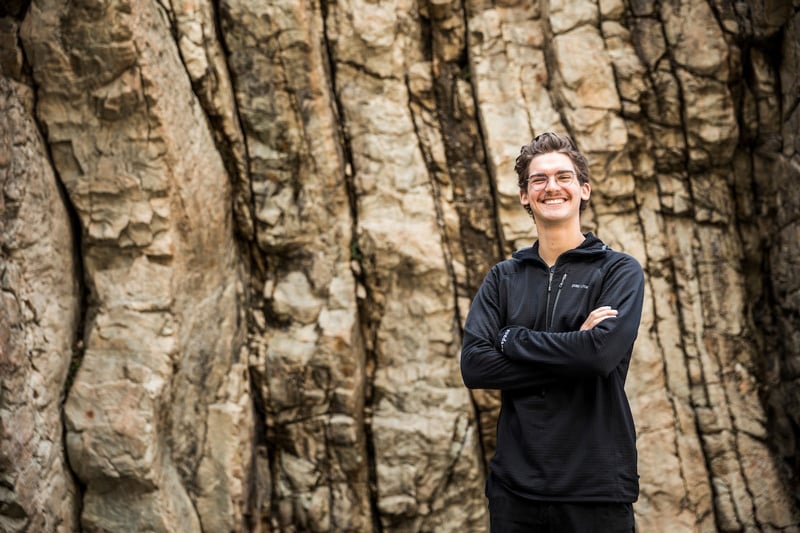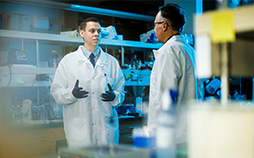Adding to Mathematics
Mathematics student Jonathan Hales says it was mentored learning that helped him develop a method that researchers can use to analyze equations.
May 2017

On the plane coming home from his mission in Hungary, Mitchell Hatfield sat next to a geologist from Texas who told him all about the field. Mitchell had taken a geology class before, but hearing about the profession this time gave him a different perspective. When he came back to BYU, he registered for another geology class and soon after changed his major.
“I took two classes from Dr. [Jani] Radebaugh, and she talked a lot about the research she was doing,” he says. “Over the summer, I was thinking about how I could get involved, so I emailed her and asked if she had anything I could work on.”
Right away Dr. Radebaugh gave him a formal mentorship assignment to work on samples from Veevers Crater in Australia. Scientists originally surmised that the picture-perfect crater had been formed when a meteorite struck the earth only 4,000 years ago. Others later suggested that it could be 1 million years old or older.
“That’s a pretty big range,” Mitchell says. “So I did an analysis of the rock samples they collected to see what minerals and elements they collected in the rock.”
Mitchell didn’t travel to Australia to see the crater in person, and the results of his research won’t be complete until after his graduation. But ultimately he knows that his growth from doing research is infinitely more valuable than seeing his name in a publication. “The main thing it taught me was self-sufficiency,” he says. “You have this thesis, but the steps for how to get there aren’t spelled out for you. You have to figure out what the next steps are as you weave through your problem.”
Now Mitchell is headed for a master’s program and then a career in environmental consulting. Regardless of what his future holds, he’s glad he can draw from what he learned in his mentorship. “I definitely think it bettered my education,” he says. “For me, the experience I had doing research over the last eight months was one of the most important parts of my undergraduate career.”
Make a Gift
Mathematics student Jonathan Hales says it was mentored learning that helped him develop a method that researchers can use to analyze equations.

Findings from BYU researchers about using tears to diagnose diseases were recently published in Clinical Proteomics.

The end goal of a BYU education, James Lee says, is to give students chances to apply what they’ve learned. For him, that happened at the Simmons Center for Cancer Research.